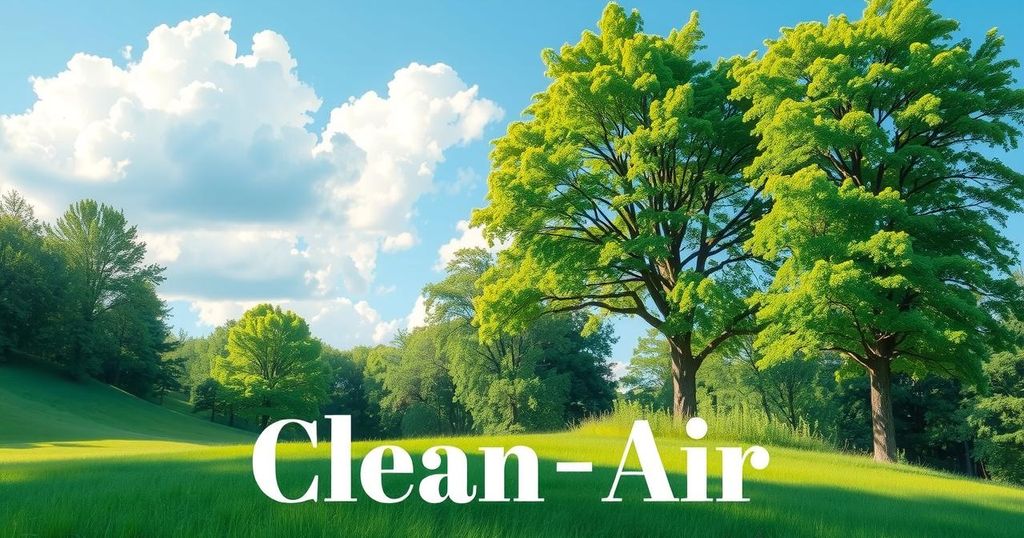Over 47 million health professionals and advocates worldwide have called for urgent action to combat air pollution. This movement, spearheaded by the WHO, highlights the public health crisis associated with air quality. The Second Global Conference on Air Pollution and Health will address this issue as it prepares for significant commitments from governments aimed at improving air quality.
In a remarkable display of solidarity, over 47 million stakeholders, including health professionals, patients, and advocates, have united to demand urgent action against air pollution. This initiative aims to safeguard public health from the severe consequences associated with air pollution, which is responsible for approximately 7 million deaths each year, primarily due to respiratory and cardiovascular illnesses.
The World Health Organization (WHO) and various international health organizations are leading this global movement, which will be formally presented at the Second Global Conference on Air Pollution and Health. This event is scheduled to occur in Cartagena, Colombia, from March 25 to 27, 2025. The conference aims to mobilize political leaders, civil society representatives, and experts to create a comprehensive global clean air agenda that can positively impact public health and combat climate change.
Dr. Tedros Adhanom Ghebreyesus, WHO Director-General, emphasized the urgency of the situation, stating that “forty-seven million people from the health community have issued a clarion call for urgent, bold, science-driven action on air pollution.” He expressed hope that the conference would lead to concrete commitments from governments worldwide aimed at reducing air pollution and saving lives.
The health community is urging governments to adopt immediate and robust measures to cut emissions, enhance air quality standards, and transition to cleaner energy sources. These actions are anticipated to yield numerous advantages for both human health and the planet. The matter will be a focal point during the 2025 UN High-Level Meeting on noncommunicable diseases (NCDs), a critical platform for urging enhanced governmental action.
Air pollution contributes to various noncommunicable diseases such as strokes, heart disease, and lung cancer. An estimated 2.1 billion individuals face hazardous levels of household air pollution, particularly from the use of dirty cooking methods. The ongoing global NCD epidemic claims approximately 41 million lives annually, underscoring the urgent need to address air quality to alleviate the burden of such diseases.
Major sources of air pollution include domestic energy production, industrial emissions, transportation, and natural events such as dust storms. Improvements in air quality through established solutions can lead to reduced premature deaths, enhanced health outcomes, sustainable economic growth, and climate change mitigation. Countries are expected to commit to robust measures during the conference, aligning efforts with the WHO’s Global Air Quality Guidelines.
Dr. Maria Neira, WHO Director for Environment, Climate Change and Health, remarked, “While the challenge is immense, progress is possible. Many cities and countries have significantly improved air quality by enforcing stricter pollution limits.” She further asserted that clean air is a fundamental human right, urging collective action towards adopting renewable energy and sustainable transport solutions.
The commitments that arise from the Second Global Conference on Air Pollution and Health, along with the upcoming UN High-Level Meeting on NCDs, are pivotal for a healthier and more sustainable future. The time for decisive action for cleaner air is now.
In summary, the unification of over 47 million individuals calling for action against air pollution highlights an urgent global health concern. The Second Global Conference in Cartagena, Colombia, will serve as a critical platform for advancing commitments to rectify this issue. With coordinated efforts, it is possible to enhance air quality, improve health outcomes, and promote sustainable development, underscoring that clean air is indeed a fundamental human right.
Original Source: www.who.int






